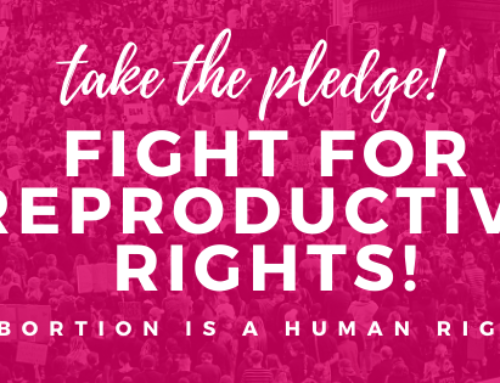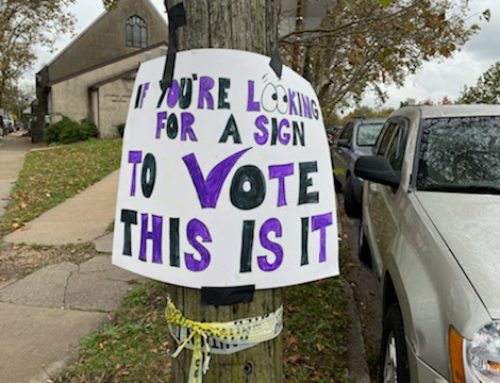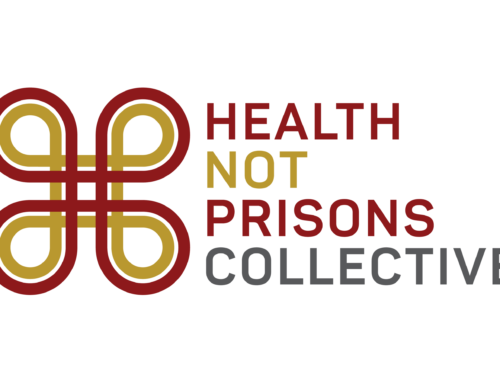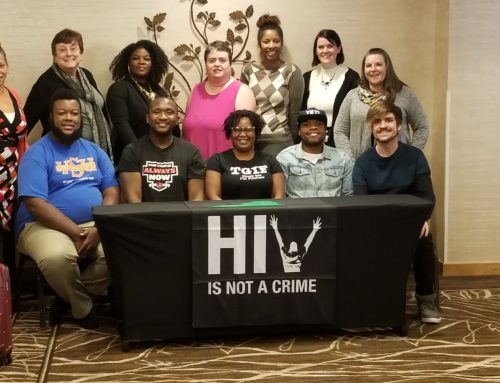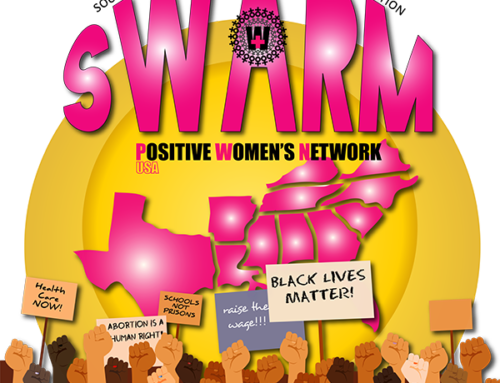Are you a person living with HIV who wants to improve the quality of life for other people living with HIV? Do you want to get involved with like-minded advocates and networks of people living with HIV? Do you believe that in order to end the HIV epidemic in America, people living with HIV must be centered in the creation and implementation of policies affecting people living with HIV?
PWN sat down with the leadership team of the United States People Living with HIV Caucus (HIV Caucus) to talk about what it is, who it’s for, and what its advocacy is about.
Q. What is the HIV Caucus and why is it important?
A. The U.S. People Living with HIV Caucus is a coalition of networks of people living with HIV and independent advocates who have assembled in defense of the HIV community living in the U.S. The HIV Caucus collectively speaks with a unified voice for people living with HIV in the U.S. We work to define and enforce the meaningful involvement of people living with HIV (MIPA) in every decision that impacts our lives. Our emphasis on the engagement of people living with HIV (PLHIV) is one of the reasons why the Caucus is important. The Caucus is also important because it is a grassroots body that most represents the wide diversity of the HIV community in the country.
Q. What are you proudest of that the HIV Caucus has accomplished?
A. We are most proud of our work in support of PLHIV networks. Our advocacy is most effective when the HIV community can speak in a single voice against stigma and structured oppression impacting our community. This is only possible if people with HIV continue to organize and develop our leadership. For example, the Caucus, along with PWN and AIDS United, manages the People Organizing Positively (POP) program, which equips organizations with the skills to develop the leadership of the HIV community. We have touched many leaders across the country who are living with HIV and doing very important work.
Q. The Caucus talks a lot about MIPA. What is that?
A. MIPA–meaningful involvement of people living with HIV (originally referred to as AIDS)–is a framework used to empower people living with HIV to step into leadership and ensure that all decisions impacting the HIV community reflect the needs of people living with HIV. This means that individuals living with the virus learn the value of their perspective and develop their leadership abilities. At the community level, MIPA encourages people living with HIV to come together to build power and support each other socially. For organizations, MIPA could mean policy change to support equity for the HIV community by including people living with HIV in all policy, programmatic, and funding decisions.
The concept of MIPA has evolved over time out of the Denver Principles, which is a list of demands made by early advocates living with HIV in 1983. Since then, HIV networks have come to center racial justice, gender justice, and the interconnectedness of other social movements that directly impact our community.
Q. How well is the U.S. domestic HIV response integrating MIPA?
A. As it pertains to the U.S. HIV response, MIPA is about working smarter rather than harder. Public health benchmarks can only be met with the full buy-in of people living with HIV and those at risk. Failure to acknowledge MIPA only undermines progress. It is important to remember that people living with HIV are subject matter experts. So excluding the HIV community from any process prevents the national HIV response from acquiring expert opinion.
The Ryan White HIV/AIDS program system is one such example of a step in the direction of MIPA, but community engagement within this system is potentially undermined by parliamentary procedures that are inaccessible to some, literacy gaps that are frequently unacknowledged, and political ideals out of alignment with what is best for impacted communities. These patterns persist through EHE (Ending the HIV Epidemic) planning and processes for drafting the 2021-2025 update of the National HIV/AIDS Strategy.
Q. What do you want the new administration and Congress to know about what’s going on for people living with HIV?
A. The new presidential administration and Congress must know that the federal response to HIV needs increased leadership and accountability. We need an effective Office of National AIDS Policy (ONAP) and a Presidential Advisory Council on HIV/AIDS (PACHA) where those most marginalized in HIV are at the center (people living with HIV, people of color, people of trans experience, sex workers and people who use drugs).
The administration and Congress also need to know that the HIV community continues to face considerable HIV-related stigma, as well as stigma and discrimination based on our other identities (including disability, race, ethnicity, immigration status, gender identity, sexuality, experience in sex work, drug use status, having been incarcerated, etc.).
The administration and Congress need to know that HIV is a racial justice issue. People of color in the U.S. bear a disproportionate impact of the HIV epidemic domestically. As people of color, we face ongoing challenges with racism across education, employment, housing, and law enforcement. Public health responses have been impeded by a lack of focus on racial justice and the federal government needs to support and integrate strategies to address structural conditions into the HIV response at local, regional, and national levels.
Q. What is the Caucus working on at the moment?
A. The Caucus is one of five organizations working as a collective to address criminalization in the U.S. with a focus on HIV criminalization laws and the criminalization of sex workers. The Caucus’s particular role is to increase community education on and awareness of HIV criminalization and the impact of criminalization on our lives and communities,
The Caucus is also working with other networks of people living with HIV in developing a policy agenda focused on the federal response to HIV and federal efforts to end the HIV epidemic.
Q. How can folks get involved in the Caucus’ work?
A. People can get involved in the Caucus by becoming a member at https://www.hivcaucus.org/. People are also encouraged to join a local or state network of people living with HIV.



